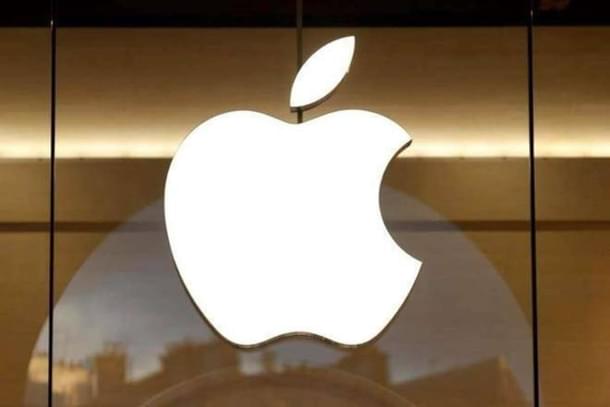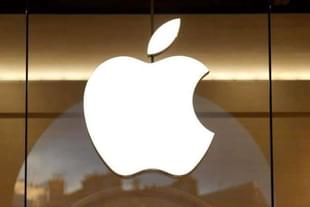News Brief
'Consumers Should Not Have To Pay Higher Prices': US Sues Apple Over iPhone 'Monopoly' - Here's What The Lawsuit Says
Kuldeep Negi
Mar 22, 2024, 10:16 AM | Updated 10:16 AM IST
Save & read from anywhere!
Bookmark stories for easy access on any device or the Swarajya app.


The US Department of Justice on Thursday (21 March) filed a lawsuit against Apple, accusing the company of unfairly controlling the market with its iPhone and burdening consumers with high costs.
The lawsuit, supported by multiple US states, argued that Apple's practices restrict competition and make it tough for people to switch to more affordable options.
The complaint, filed in the New Jersey District Court, alleges that Apple illegally maintains a monopoly over smartphones by selectively imposing contractual restrictions on, and withholding critical access points from, developers.
"Apple undermines apps, products, and services that would otherwise make users less reliant on the iPhone, promote interoperability, and lower costs for consumers and developers," the Justice Department said in a statement.
Apple exercises its monopoly power to extract more money from consumers, developers, content creators, artists, publishers, small businesses, and merchants, among others, it said.
"Through this monopolization lawsuit, the Justice Department and state Attorneys General are seeking relief to restore competition to these vital markets on behalf of the American public," the Justice Department added.
This legal clash between Apple and the government is a big deal after years of Apple avoiding serious scrutiny from regulators.
Apple now finds itself in a similar boat as other tech giants like Amazon, Google, and Meta (formerly Facebook), who are also facing antitrust lawsuits in the US.
Following the news of the lawsuit, Apple's stock prices dropped by nearly 4 per cent on Wall Street.
The heart of the issue in the lawsuit is Apple's alleged tactics that make it hard for other companies and developers to reach iPhone users without jumping through difficult hoops.
The lawsuit claims that Apple forces people to stick with its products and buy its expensive devices.
“Consumers should not have to pay higher prices because companies violate the antitrust laws,” said Attorney General Merrick B Garland.
“We allege that Apple has maintained monopoly power in the smartphone market, not simply by staying ahead of the competition on the merits, but by violating federal antitrust law. If left unchallenged, Apple will only continue to strengthen its smartphone monopoly. The Justice Department will vigorously enforce antitrust laws that protect consumers from higher prices and fewer choices. That is the Justice Department’s legal obligation and what the American people expect and deserve," he added.
In response, Apple pushed back, saying the lawsuit is based on wrong information and laws, and they plan to fight it strongly.
The company also warned that if the lawsuit succeeds, it could set a precedent where the government interferes more in how technology is designed and used.
The lawsuit also pointed out Apple's hindrance of "Super Apps," which could offer multiple services in one place on iPhones.
It criticised Apple for controlling tap payment technology and making it tricky for iPhone users to connect with Android users.
The complaint alleges that Apple's anticompetitive behaviour is designed to maintain its monopoly power while extracting as much revenue as possible.
The complaint alleges that Apple’s anticompetitive course of conduct has taken several forms, many of which continue to evolve today, including:
Blocking Innovative Super Apps: Apple has disrupted the growth of apps with broad functionality that would make it easier for consumers to switch between competing smartphone platforms.
Suppressing Mobile Cloud Streaming Services: Apple has blocked the development of cloud-streaming apps and services that would allow consumers to enjoy high-quality video games and other cloud-based applications without having to pay for expensive smartphone hardware.
Excluding Cross-Platform Messaging Apps: Apple has made the quality of cross-platform messaging worse, less innovative, and less secure for users so that its customers have to keep buying iPhones.
Diminishing the Functionality of Non-Apple Smartwatches: Apple has limited the functionality of third-party smartwatches so that users who purchase the Apple Watch face substantial out-of-pocket costs if they do not keep buying iPhones.
Limiting Third Party Digital Wallets: Apple has prevented third-party apps from offering tap-to-pay functionality, inhibiting the creation of cross-platform third-party digital wallets.
The complaint also alleges that Apple’s conduct extends beyond these examples, affecting web browsers, video communication, news subscriptions, entertainment, automotive services, advertising, location services, and more.
"Apple has every incentive to extend and expand its course of conduct to acquire and maintain power over next-frontier devices and technologies," the department said.
Kuldeep is Senior Editor (Newsroom) at Swarajya. He tweets at @kaydnegi.





